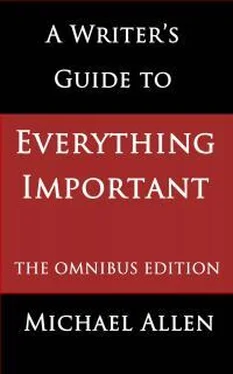Fortunately, while I was still at school, and later at university, I had access to first-class libraries, and I suppose I picked up some useful knowledge of the workings of the human mind. That said, I was never convinced that Freud and Jung knew much about anything, frankly, and I continued to search for something a bit more down to earth. And at some point, possibly in the early 1960s, I discovered W. Beran Wolfe, author of How to Be Happy though Human.
When I tell you the publishing history of How To Be Happy Though Human , by W. Beran Wolfe, you will wonder why I bother to mention the book at all. The answer is twofold.
First, in a lifetime of reading, this is the best book that I have ever found about human psychology. If you want to know what makes people tick, this is the book for you. The second reason relates closely to the first: because of its insights into what drives human behaviour, I have found the book to be enormously helpful in creating credible characters for fiction and drama.
Of course, if you’ve ever read any of my fiction, you may think that I’ve never succeeded in creating convincing characters; nevertheless, I at least feel that I have understood their background and motivation, and I was therefore able to have sufficient sympathy with them to be able to write about them.
Now for the publishing history. How To Be Happy Though Human was first published in New York in 1931. Routledge did a UK edition in 1932, which was reprinted periodically. The book must slowly have come to be regarded as a minor classic, because twenty-five years later Penguin UK brought out a paperback version under the Pelican imprint; it was reprinted in 1959. And, finally, Routledge issued a hardback edition in the UK in 1999.
The Routledge edition of 1999 was aimed firmly at the academic-library market. How do I know that? Because it was originally priced at £135, and is now £200. Even Amazon want £160. What this 1999 edition (reprinted in 2013) suggests is that Beran Wolfe, and How To Be Happy Though Human, are now recognised as having a significant place in the history of psychology.
I can tell you little about Dr Beran Wolfe, beyond what is printed on the back of the Pelican edition. He was born in Vienna in 1900, but educated in the USA. He went back to Vienna for postgraduate study, and became an assistant to Alfred Adler. He must have been thoroughly bilingual, because his grasp of English is immaculate (few people can explain complicated issues so clearly) and he translated some of Adler's work.
After his time in Vienna, Wolfe returned to New York, where he practised psychiatry. His writing work was done between 11 p.m. and 3 a.m., and he always wrote to music on gramophone records (the neighbours must have loved him). He was apparently killed in an accident in 1935.
Alfred Adler, by the way, was one of the famous Viennese triumvirate of psychologists, the other two being Sigmund Freud and Carl Gustav Jung. All three men initially worked together but eventually fell out, and developed their own significantly different ideas. Of these three, Adler is by far the least known, but he was, for my money, the one who talked the most sense. Not surprisingly, having studied with him, Wolfe was heavily influenced by Adler.
How To Be Happy Though Human is designed for the lay reader – the title alone tells you that – and it is a model of clarity in its organisation and style. There are twelve chapters, with frequent sub-headings, and each chapter begins with a summary of what has been learnt so far, and a short account of the contents of the coming chapter.
The book runs to some 355 pages, and I am not about to try to summarise it. Any kind of precis would be bound to give a misleading impression. However, I think it is fair to say that Wolfe, like Adler (and, for that matter, the Jesuits), believed that early childhood experiences play a major part in developing a person’s character.
All children, in their earliest days, are weak and incapable of looking after themselves, and these early experiences of helplessness, or ‘inferiority’, are crucial. In particular, they lead to attempts to be strong, to be in control, and to put an end to emotional and physical discomfort.
Wolfe is a great believer in the purposive nature of human behaviour, even if the underlying purpose of the action is not always clearly understood by the person concerned, let alone anyone else. In his book, he argues that any person, other than those with severe mental incapacity, is capable of deciding what to do. There are sensible things to do, and stupid, antisocial, selfish things to do. But you can always choose. The smart thing to do is to think about why you favour action (a) over action (b), and to decide if it is truly sensible or not.
The author comes across as a fairly hard-line man. He is not one of the ‘pull-yourself-together’ school, but he certainly believes that no one is going to achieve happiness by pursuing exclusively selfish interests. This sometimes makes for uncomfortable reading (at least for me), because you find yourself realising that Wolfe would not be enthusiastic about many of the things that you wish to do, and in some cases have done for years.
As I say, I first read this book in about 1960, and it must have made a considerable impression on me, because when I came to read it again, in 2006, I found that certain passages were very familiar; it was as if I had read them yesterday.
The book’s principal virtue, for the average reader, is not so much that it is a self-help manual – though it is certainly a fine example of that – but that it provides an outstanding guide to human motivation.
I re-read Beran Wolfe in 2006 mainly because I wanted to remind myself of what he had to say about ambition. And of that, more in the next section.
3.2 Ambition in particular
Over a period that stretches back more than fifty years now, I have met a considerable number of writers; and I suppose I must have read books and articles about hundreds of others – possibly thousands. Most of these writers have specialised in ‘creative’ writing, i.e. fiction or drama.
The one outstanding characteristic which nearly all these writers have had in common is their immensely powerful ambition.
They are ambitious in that they yearn passionately for success. They long to be famous, to make lots of money, to be favourably reviewed in prestigious journals, to be interviewed on TV, to be asked for their autograph... and so forth. That’s why they put in enormous amounts of time and energy.
As an example of infection by the success bug, here is an extract from an email that I received from a reader who had read my essay On the Survival of Rats in the Slush Pile :
I suspect that you are right about everything [said my correspondent]. Nevertheless, I do expect my fifth or sixth novel (learning narrative technique being the slow job it is) to command an advance of $750,000 or so. I also expect the book to top the New York Times bestseller list for at least a year, during which time I will tour the United States at my publisher’s expense, fighting off beautiful graduate students at every airport. This analysis does not even include the royalties, or whatever you call them, from the movie deal – and considering that the movie Titanic grossed over a billion dollars, I think I can quite reasonably expect to quit my job and purchase the Mideast, which I intend to turn into a paradise of peace and plenty.
The tone of my correspondent’s email is jocular, but the sentiments are but little removed from those of many a young and naive writer; and I should know, because I have definitely been one of those.
In the days when I was blogging regularly (as the Grumpy Old Bookman), I sometimes made provocative statements about the prevalence of lunatic ambition; afterwards, I had emails from perhaps four or five writers who claimed that they were not ambitious at all. They said that they were in the writing business purely for the pleasure and satisfaction of it.
Читать дальше












